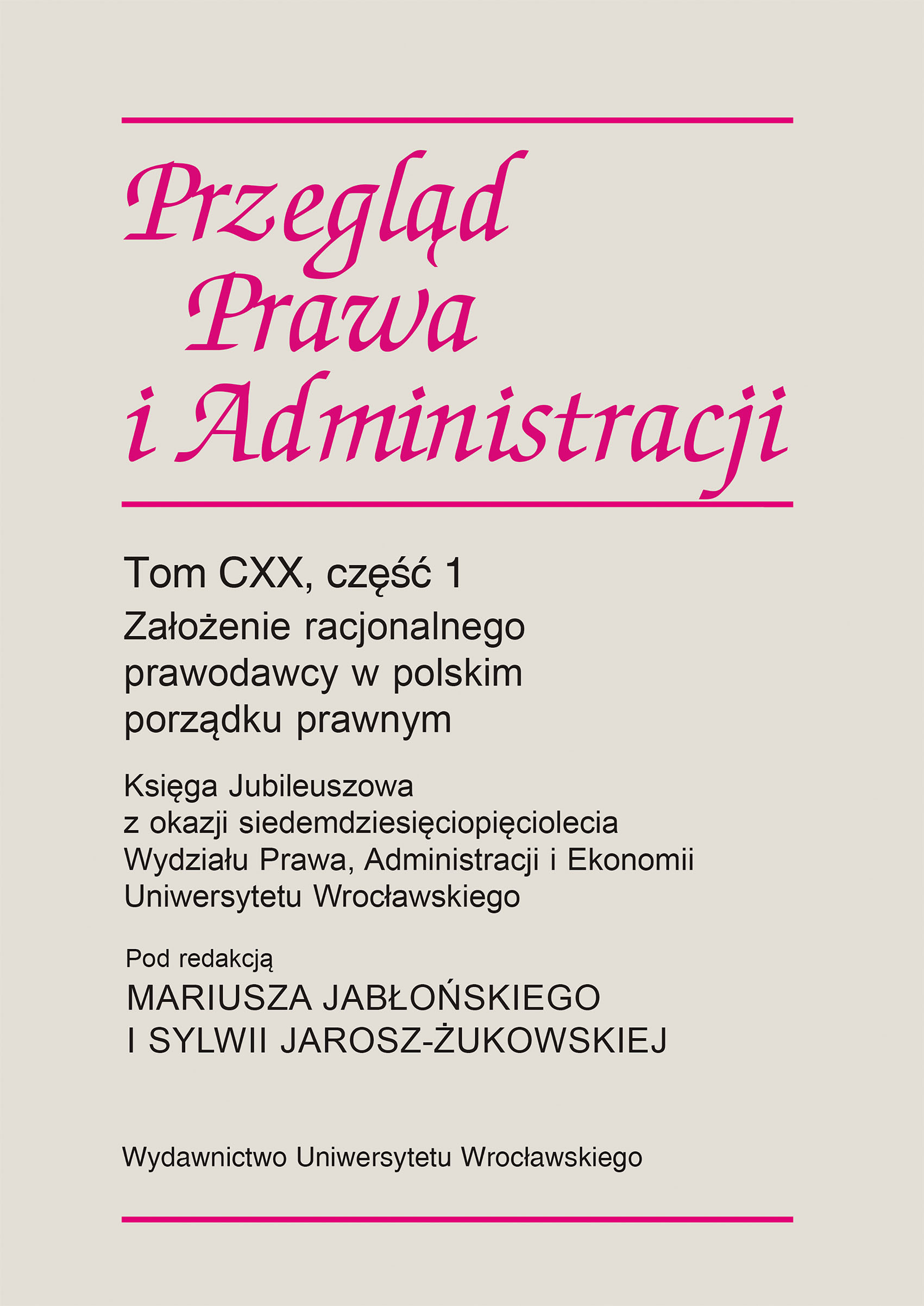

ISSUES IN CRIMINAL LAW, EXECUTIVE CRIMINAL LAW AND CRIMINAL PROCEEDINGS

The article focuses on four requirements that must be met when drafting regulations on the ad-missibility of evidence obtained in violation of human rights. The first one assumes that a thorough analysis of both the theory and practice of functioning of national regulations regarding admissi-bility of improperly obtained evidence, as well as comparative analysis regarding that topic has to be conducted. Further, what requires consideration are constitutional and international standards forming a framework within which the legislator must fit. It is also necessary to clearly define the purpose of the regulations determining the admissibility of evidence obtained in violation of indi-vidual rights. The latter will allow consistency in drafting detailed regulations on who, how, and to what extent should admit the discussed pieces of evidence. The last issue is the choice of the optimum shape of a mechanism for sanctioning evidence obtained in violation of human rights. It should ensure a right balance in the distribution of power to decide on the admissibility of evidence between the legislator and law enforcement bodies, as well as the necessary flexibility with safe-guards against excessive discretion.